Good afternoon, ‘bellies! Okay, you are not ‘bellies, but I feel awfully affectionate toward y’all today as we move into a third month with Storybelly and start to hit our stride with home and history and all things story. I’ll write an essay today and not worry about categories. You already know I write about home and history here every week, and with every book I write. So lets get to it.
As I drove home in the dark from Charlottesville last week, I listened to the playlist from Anthem, curated by reader and librarian Sarah Ralph, which you can find here, on Spotify (whether you have an acct there or not, I believe), if you are teaching or reading that book. Thank you, Sarah!

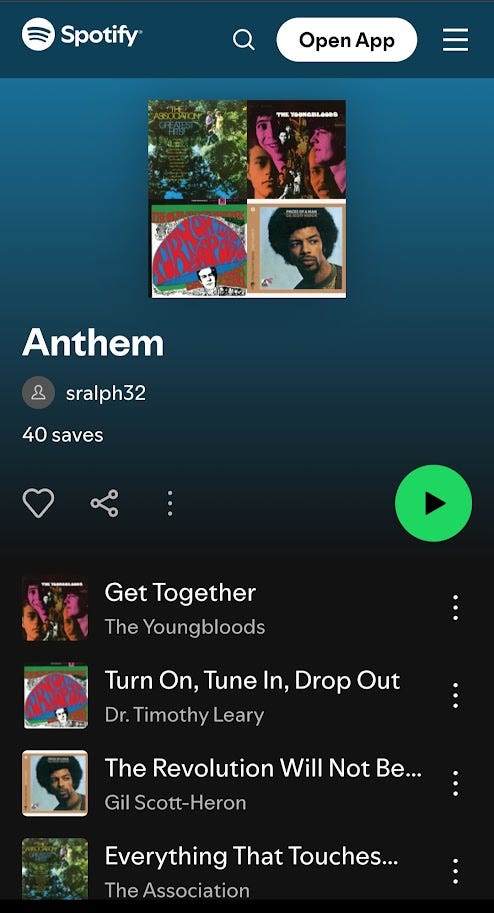
The music on Anthem’s playlist pulls me into the 1969 world of Molly and Norman and Ray (who makes an important appearance fresh from Revolution/1964, five years older now); into my own world in 1969; and into the writing of that book.
There are 47 chapters in Anthem, each of them anchored by a song from the late Sixties, and each of them doing the lifting that gives us atmosphere as well as information for that chapter and context for the book as a whole.
There are seven scrapbook sections in Anthem. They are there to serve as context for readers of all ages, and for all types of learners. I was struck by my many years of writing with students in workshops to realize anew that history was a series of dates, places, and people to them, instead of a multi-faceted mosaic of connecting and coinciding events large and small, and I wanted to show readers that mosaic.
Hence, the documentary novel was born. I wrote three novels of the 1960s, each a stand-alone story, with scrapbooks of clippings, photographs, and other ephemera of the times: in Anthem I concentrate on the Vietnam War, the counterculture, civil rights, and rock-and-roll. Some stills from Anthem’s scrapbooks are below. You can download Scholastic’s discussion guide for the Sixties Trilogy, or just peruse it, here.
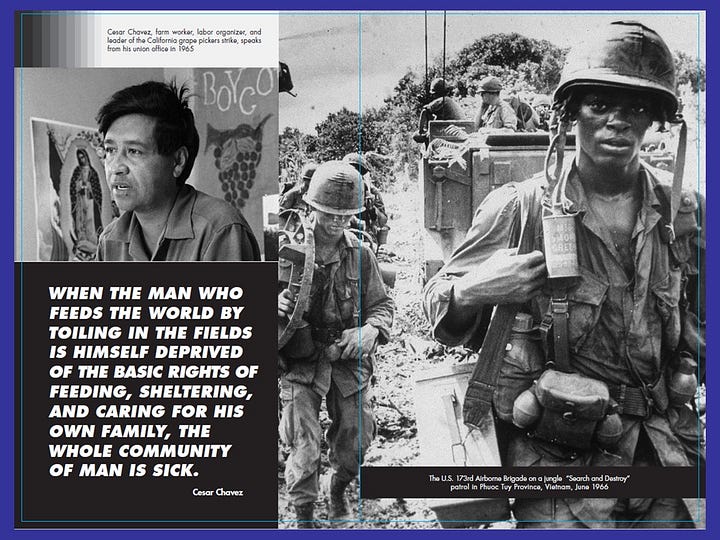
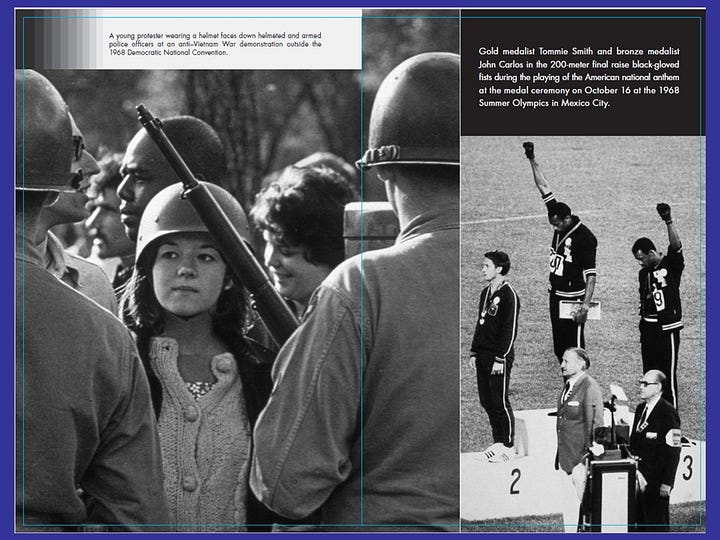
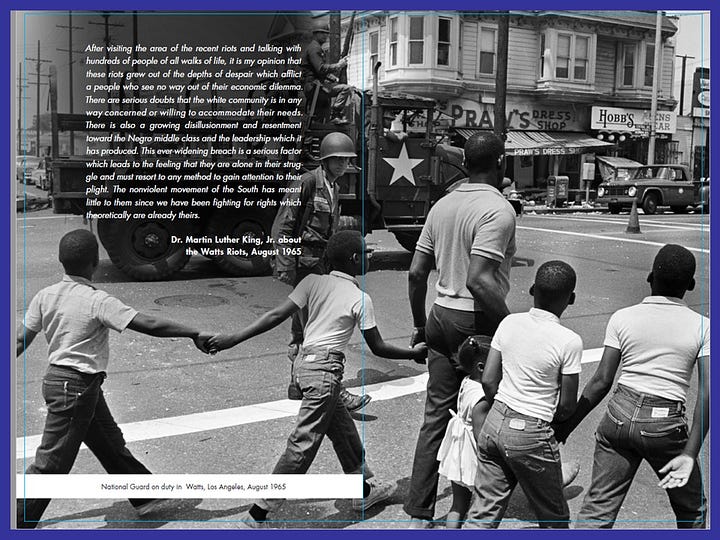
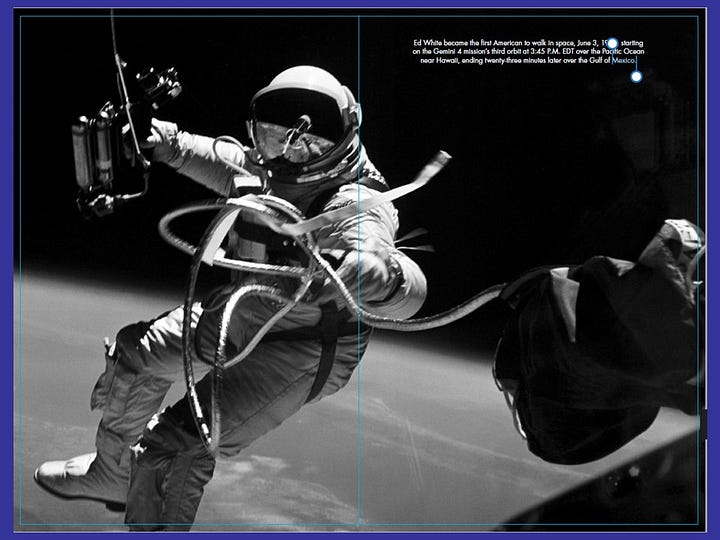
The song I listened to on repeat for a while, speeding through the dark toward home, was “Beginnings” by Chicago.
Only the beginning/Only just the start
That song begins chapter 46, as Molly and Norman make the decision to head home in that wildly painted school bus of theirs, with an extra surprise passenger, and with all the adventures they have had driving across the country from Charleston, South Carolina to San Francisco tucked into their minds and hearts… all those stories of America in 1969.
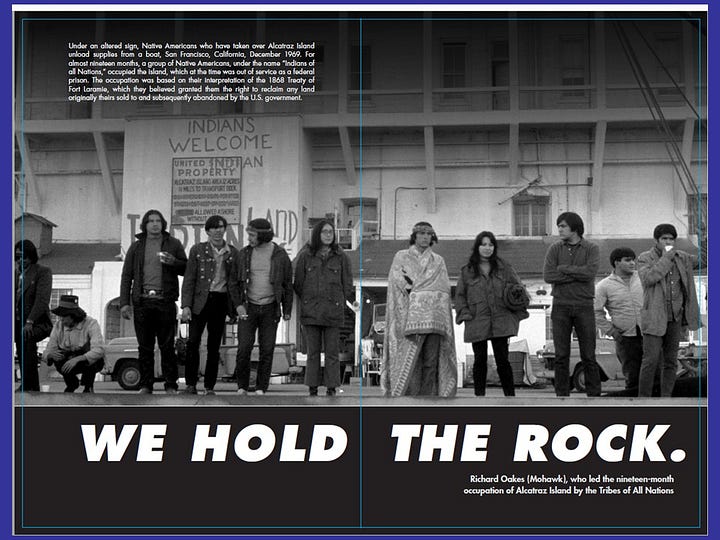
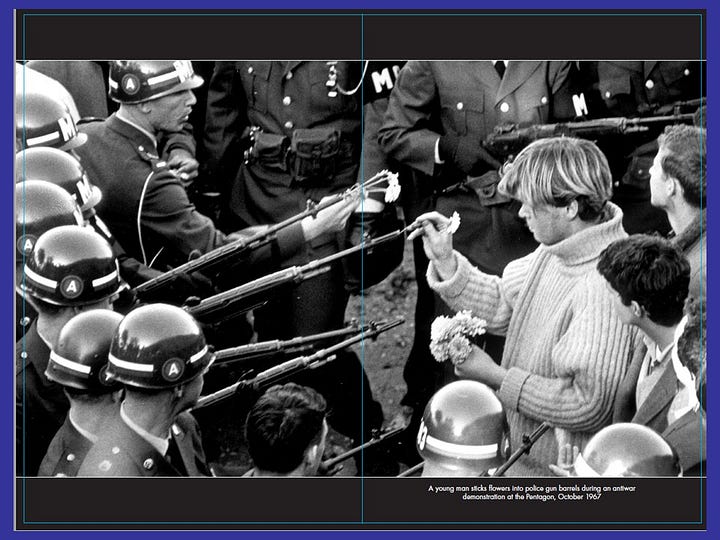
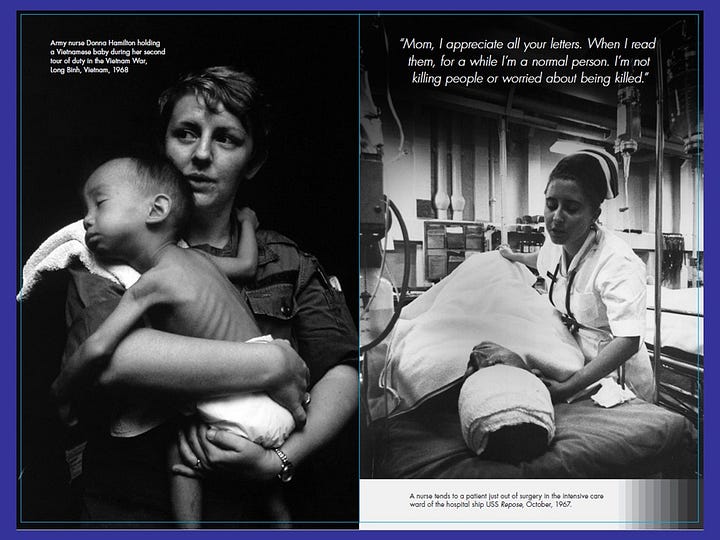
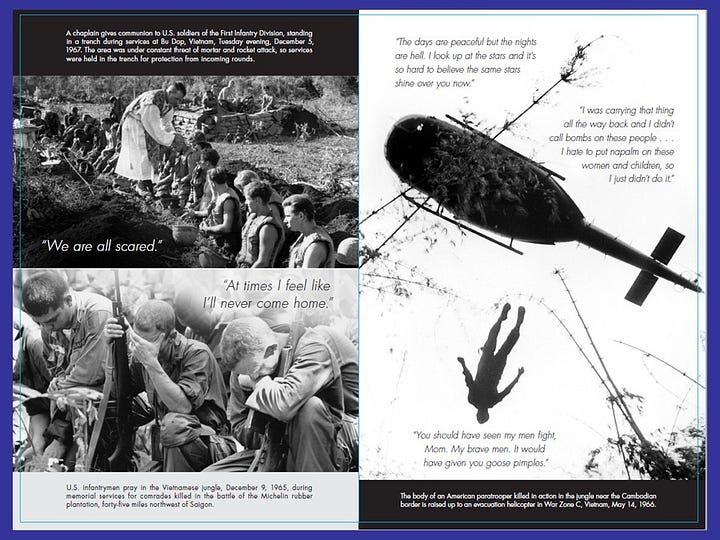
Then, the next (and last) chapter is short and concludes with a look forward for these young people, to the tune of “America” by Simon & Garfunkel.
They’ve all come to look for America.
I’ve thought about this ending so much in the week that I’ve been home, about beginnings and America. I’ve thought about all the hope that this ending of Anthem holds for the reader, for Molly and Norman, and for me. I’ve thought about how much I love this country, America.
The book I’m writing now, about the Unite the Right rally in Charlottesville, Virginia in 2017 — well, one draft of it — begins at the beginning of America, with Virginia Dare and the Roanoke Colony and the mystery of what happened to them, and even before that, with purple mountains majesty and running streams and rushing rivers and “lions and tigers and bears oh my” and the first inhabitants of this country, the Indigenous peoples who lived close to the earth, before there was the name “America” given to this country by what could only be seen by the Indigenous, eventually, as “invaders,” a word I’ve come across dozens of times in research about the North “invading” the South and the origins of The Lost Cause of the Confederacy and the Rise of White Supremacy (which was my original title for Charlottesville).
Every ending is another beginning — I teach that concept in every crowd or clutch of students I stand with in workshop or assembly, exhorting them to believe that the breath, the day, the person — them! — the country is a story, that the end of one breath is the beginning of another, the end of one day is the beginning of another, that the long night passes and “joy cometh in the morning,” or at least the tasks of cleanup and an assessment of damages and a plan for rebuilding, restoring, or in the case of a manuscript — and, often, a life — a plan for revising and rewriting. A plan for understanding.
“Every human being is worthy of dignity and respect, and every person’s story is important.” My constant refrain, I know, and now more than ever. It’s why we’re building a writing community here at Storybelly.
Story is the most powerful change-agent on Earth. Just like history is a mosaic of events weaving into one another… that’s America, too: a crazy-quilt of different religions, cultures, colors, creeds, arguments, compromise… We are a nation of stories, and telling those stories in any form they take — written words, songs, pictures, spoken words — this is the path to peace.
You can share this post with whomever you wish — we need all the stories we can get now. Write what’s on your heart. I’m so happy you’re here.
This week, if you want some suggestions on what to write, listen to “Beginnings” and then to “America” and write in your notebook what comes up. That’s enough. That is everything! There is a line in “America” that might also call to you:
Kathy, I’m lost, I said, though I knew she was sleeping
I’m empty and aching and I don’t know why
Post what you write below in comments, so we can all see and share. I will, too. If you want more specific writing instruction, you can join the lab, here.
Here is my Home & History this week, all are stories that come directly out of my life, even though they are fiction:
As I say every week, I hope you connect to your own home and place in history when you read and share these books. You can find out more about them at my website, here.
Until next time. Go gently, and take care of one another.
xoxo Debbie

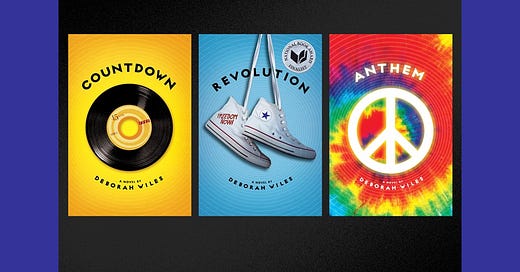


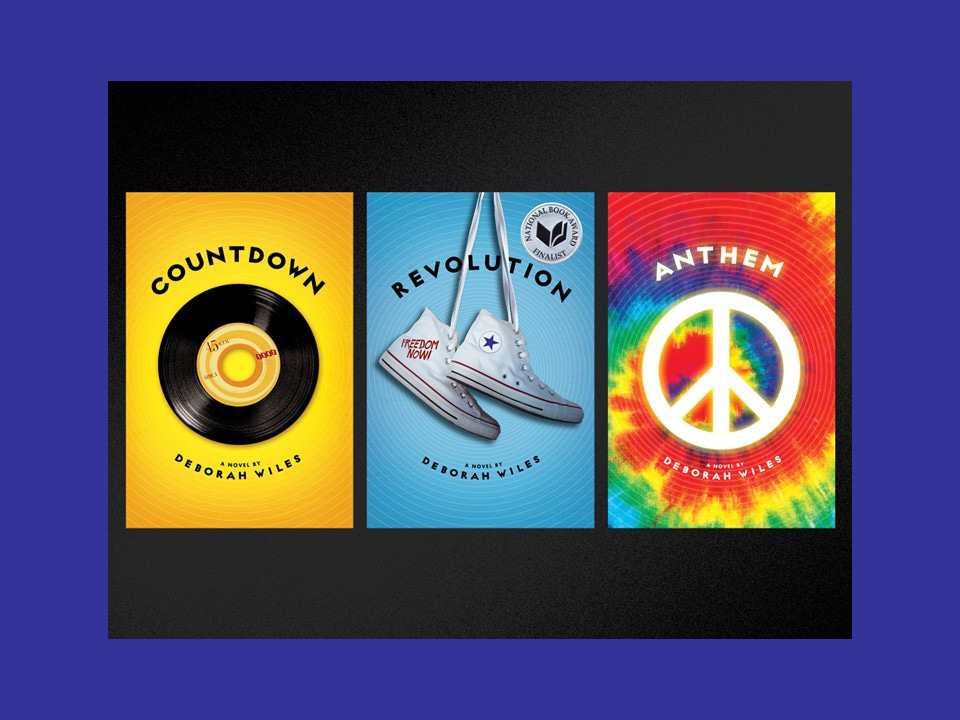
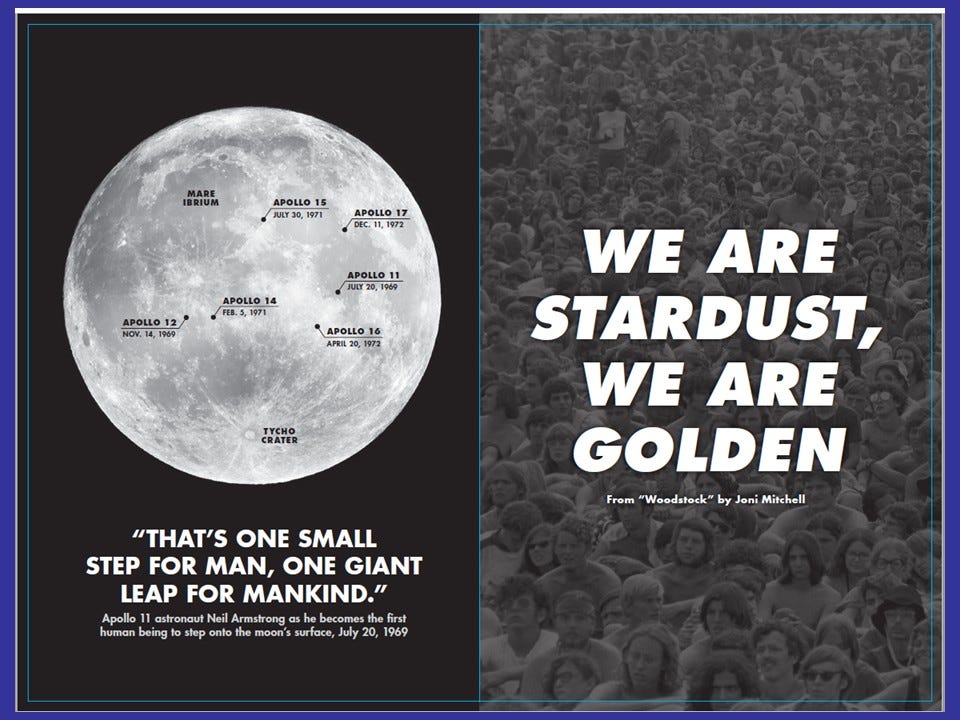
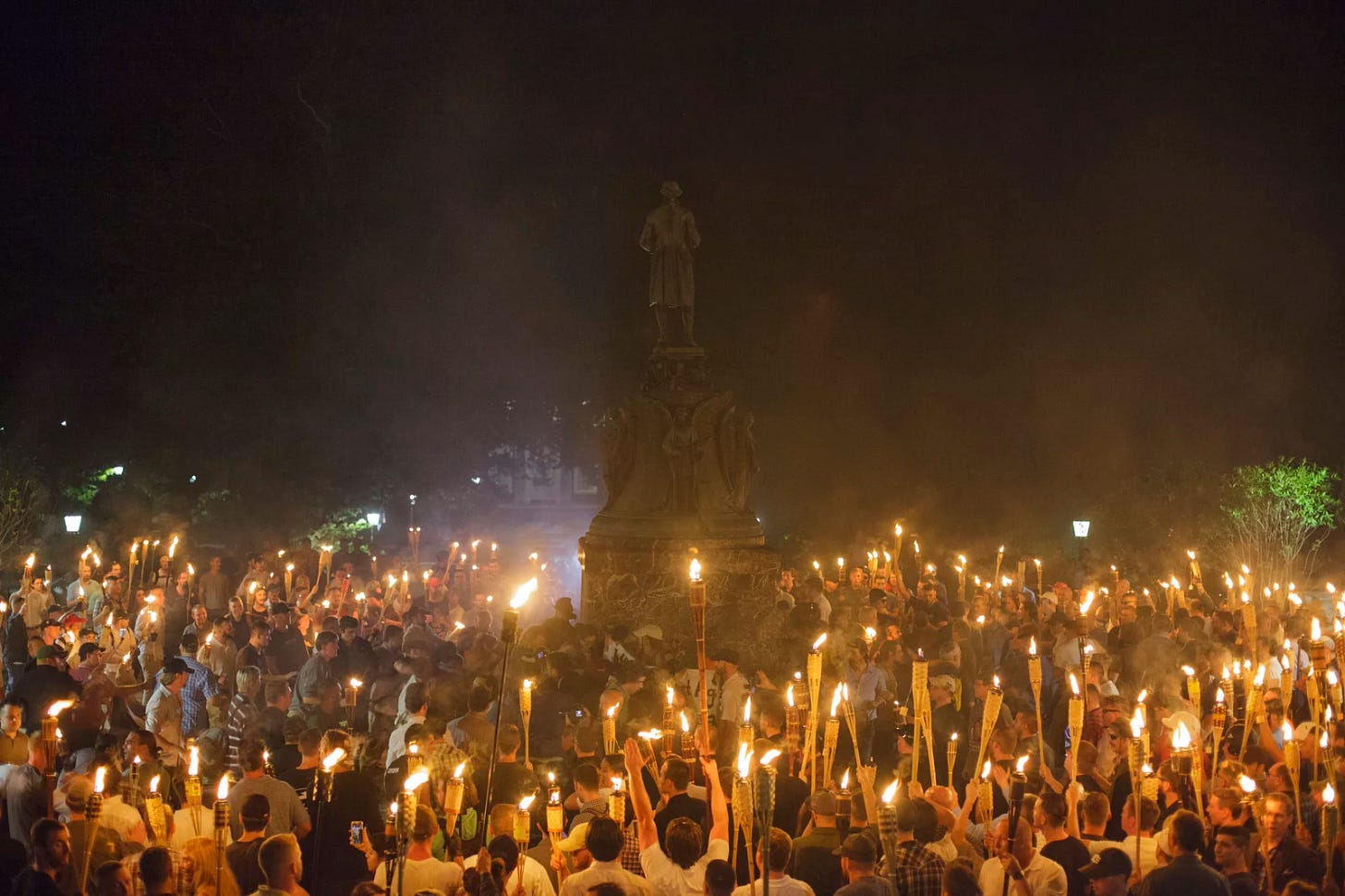


This is a playlist for me! You have inspired me to look at Anthem and how we might explore it together in class next year. I've read Countdown. Can Anthem be read as a stand alone or does it require the other two for understanding?
Here is some stream of consciousness for the "assignment" of listening to both "Beginnings" by Chicago and then "America" by Simon & Garfunkel. For me it includes writing Anthem and revisiting it through music. So: I listened to the entire Anthem playlist on Spotify while driving home from Charlottesville, VA to Atlanta... in the dark, mostly. I had spent the day researching sites having to do with the Unite the Right rally in 2017, and thinking about how divided Americans are as a country now, and how -- in some ways -- it felt the same in the Sixties, when Anthem takes place. I was very young then, and as devastated as I felt about the war in Vietnam -- I had friends reaching draft age, too -- I had a lot of hope. I think it was the hope of youth. My mother used to seem so cynical to me, and I remember telling her, "I will NEVER be like you!" and thinking it was impossible to feel such depressions and anger and despair about the state of the world, not to mention my room. Well... I get it today. I had no frame of reference at 16, and no understanding of how much the world and life could beat one down, relentless in reality and roadblocks and bringing me up short and finding me wanting, again and again. Now I am the age my mother was then. It's hard sometimes to hold onto hope, to be lighter than she was, and lighter than I have sometimes become. But I am determined to try. It sounds Pollyanna, perhaps, to say that we can work it out (thank you, Beatles), but I want that, so I'm sticking with that hope. I spent time in the car, listening to "Beginnings" more than "America" and thinking about how each day is a beginning, each hope, each breath, and how I do still have the chance to do good work in the world, how one person's doing something positive, matters. Yes? It builds. That's my hope as well. [This is entirely first draft and unfiltered, lol, now it is someone else's turn!]